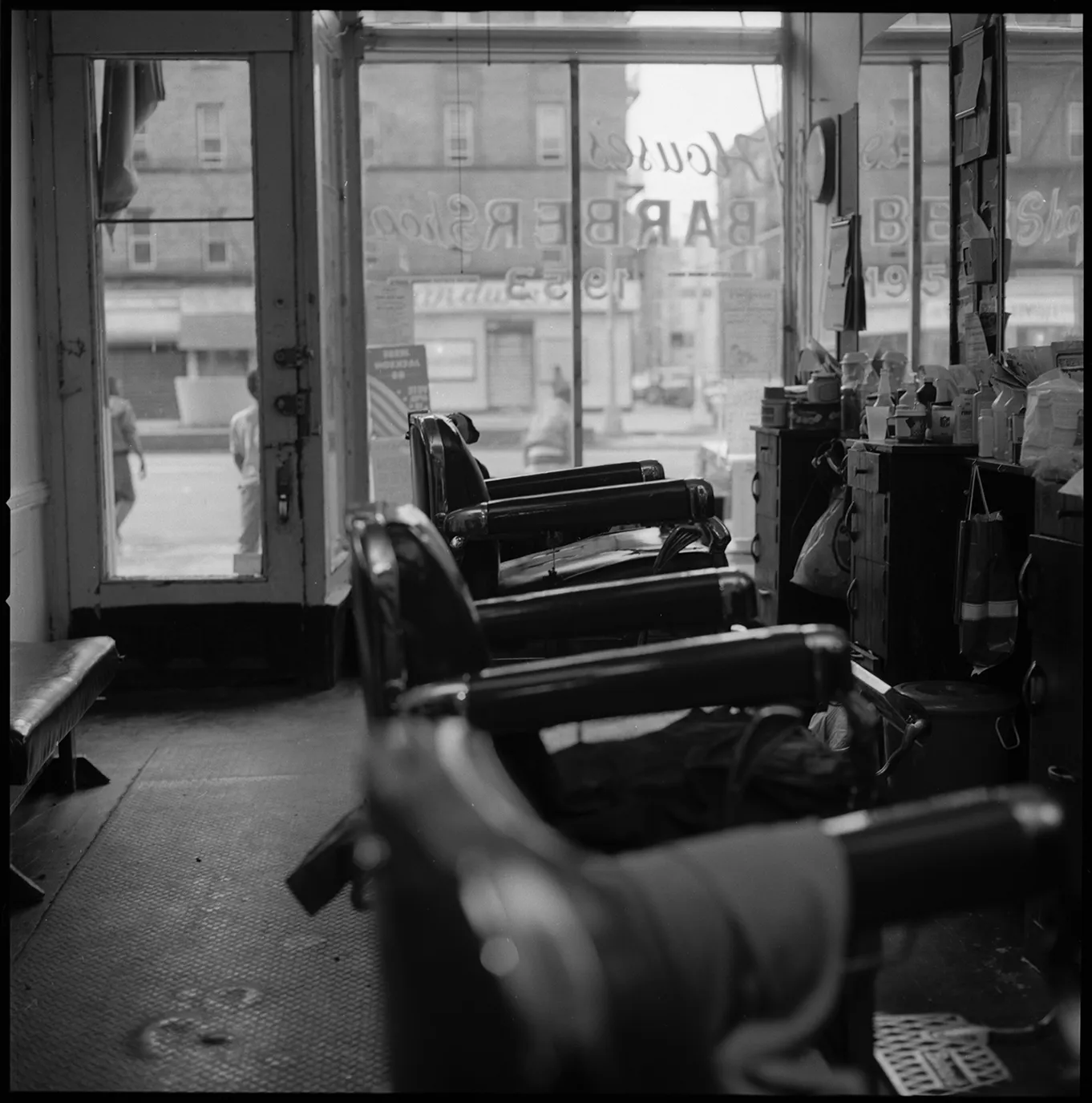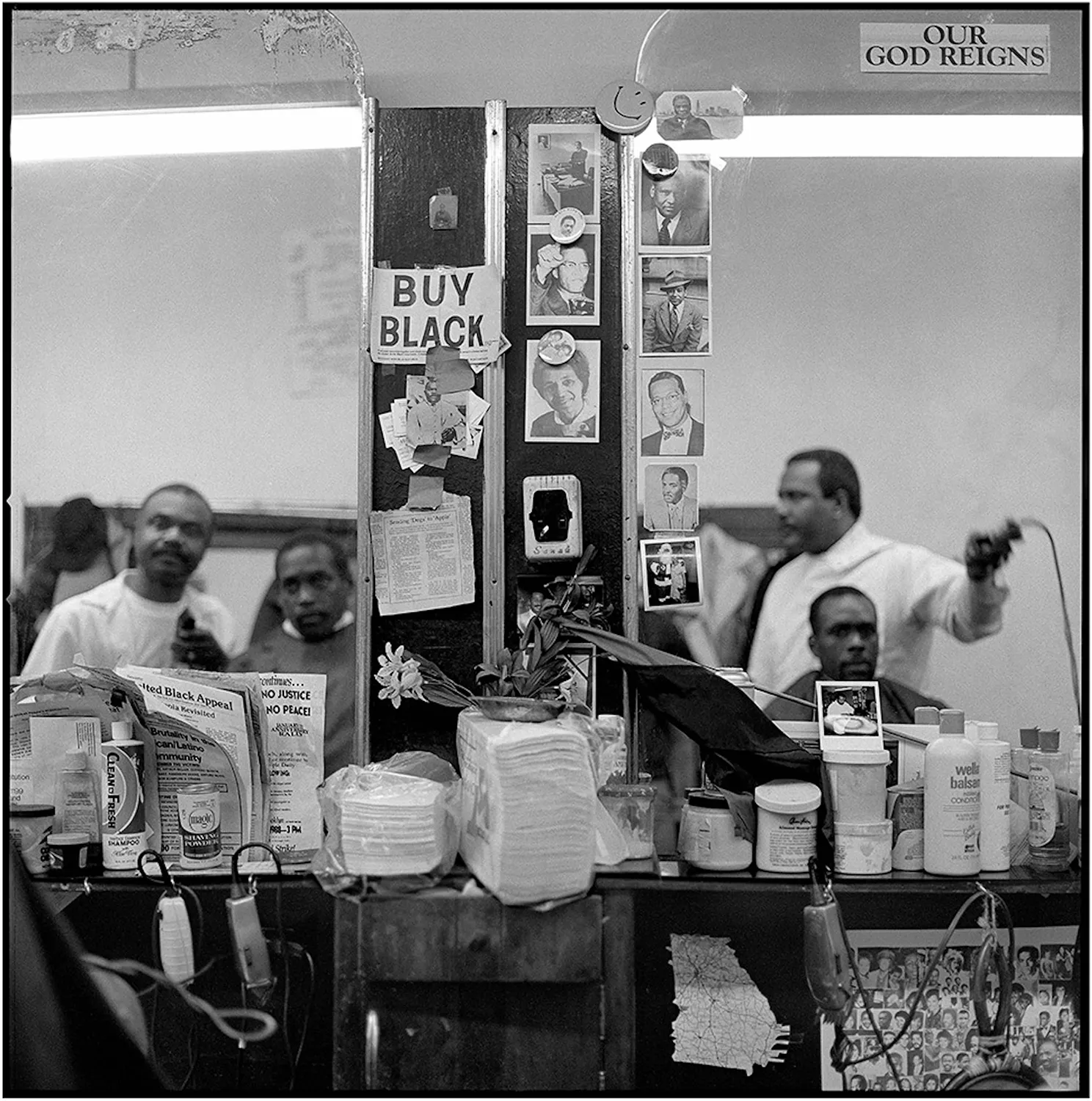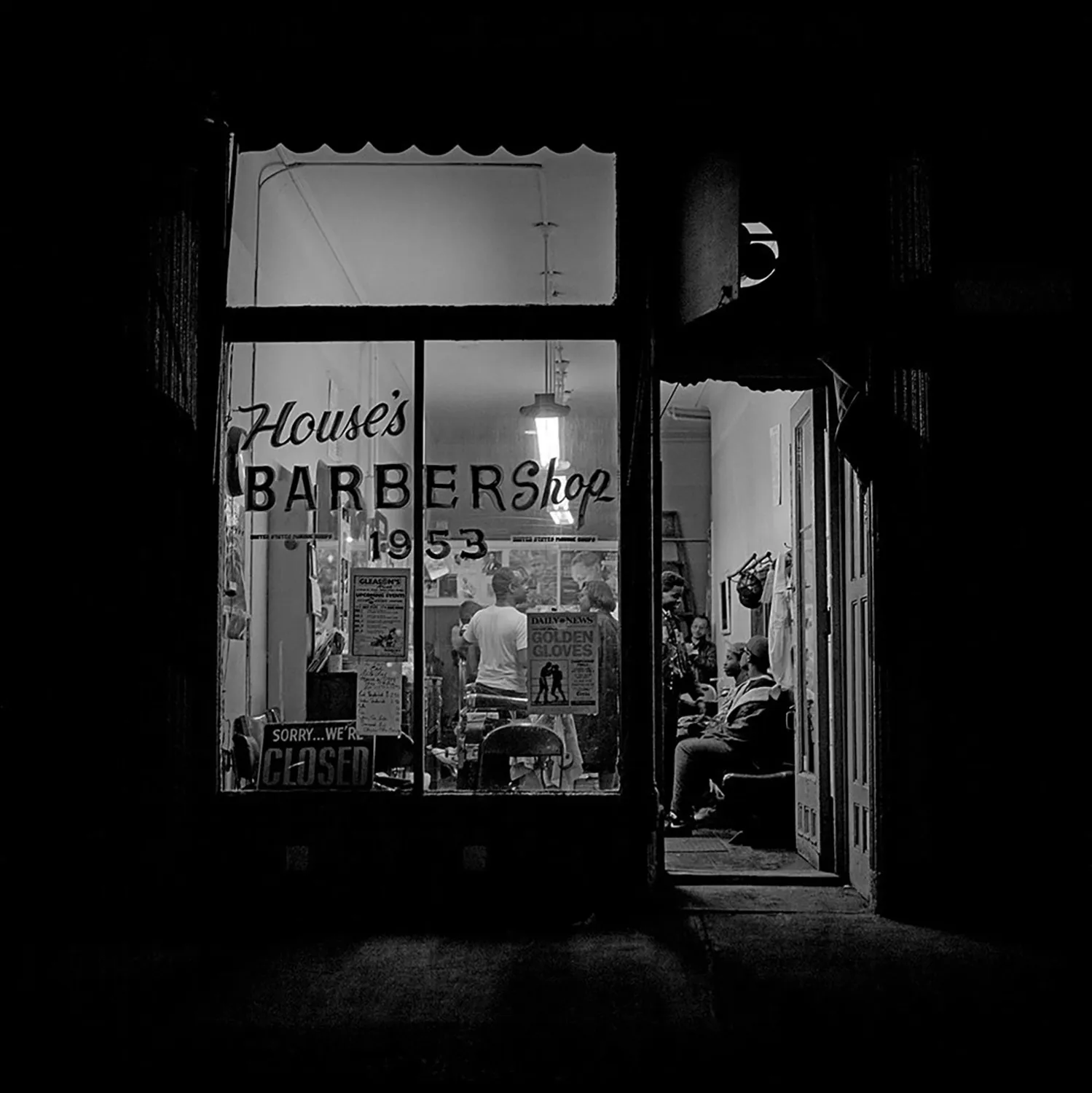 Jeffrey Henson Scales, Nightfall, 1986-1992. Gelatin silver print
18 x 18 inches | 45.72 x 45.72 cm
Jeffrey Henson Scales, Nightfall, 1986-1992. Gelatin silver print
18 x 18 inches | 45.72 x 45.72 cm For over fifty-five years, House’s Barber Shop on Harlem’s Seventh Avenue was more than a place to get a haircut—it was a vital social hub, a space where generations gathered to exchange stories, debate, and sustain community traditions. In a neighborhood shaped by both resilience and upheaval, the shop stood as a witness to Harlem’s evolving cultural landscape, offering continuity amid social and economic change. It is precisely this rich intersection of history and daily life that Jeffrey Henson Scales captured in his photographic series, now on view in his exhibition House's Barber Shop at Claire Oliver Gallery.
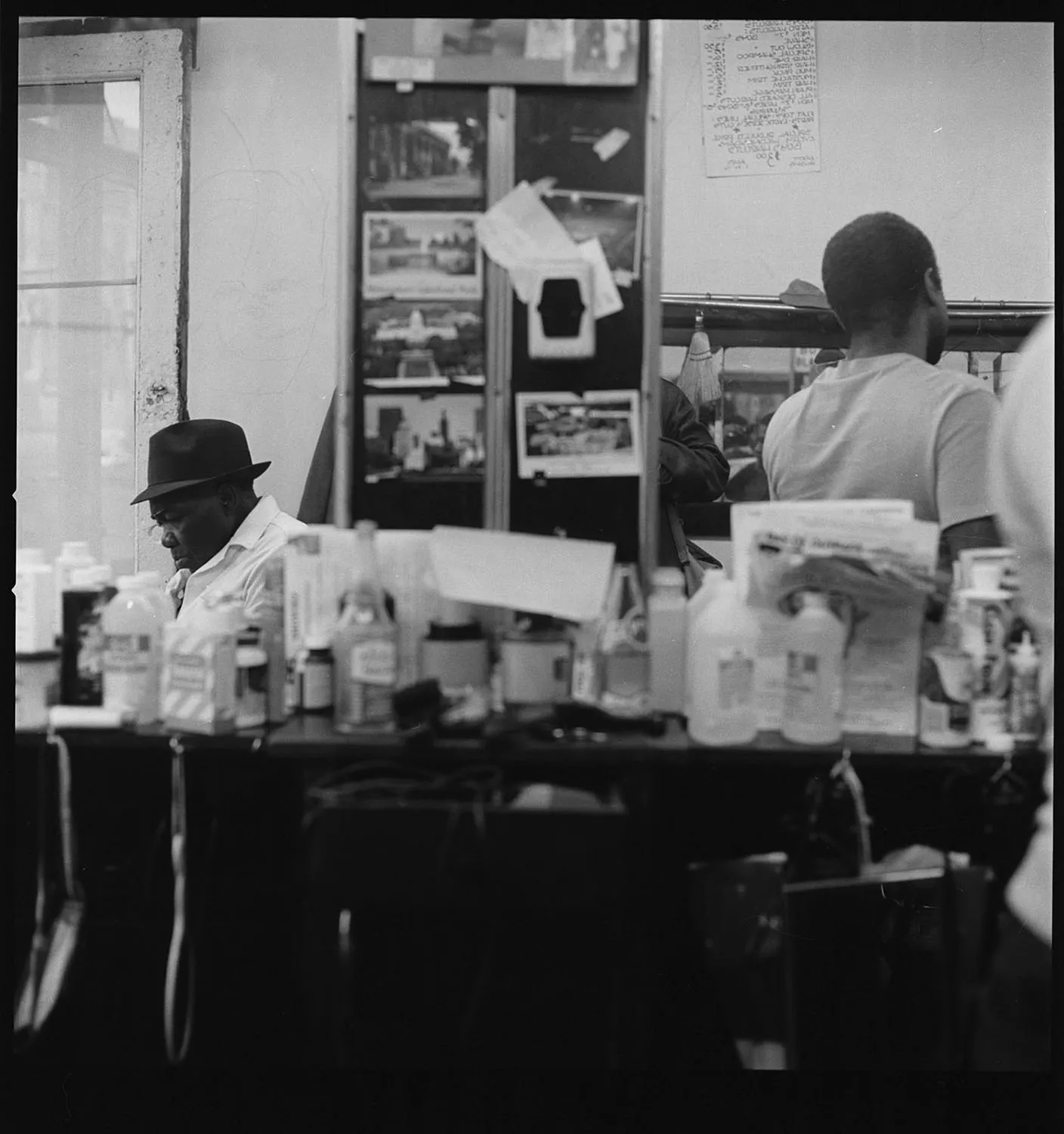
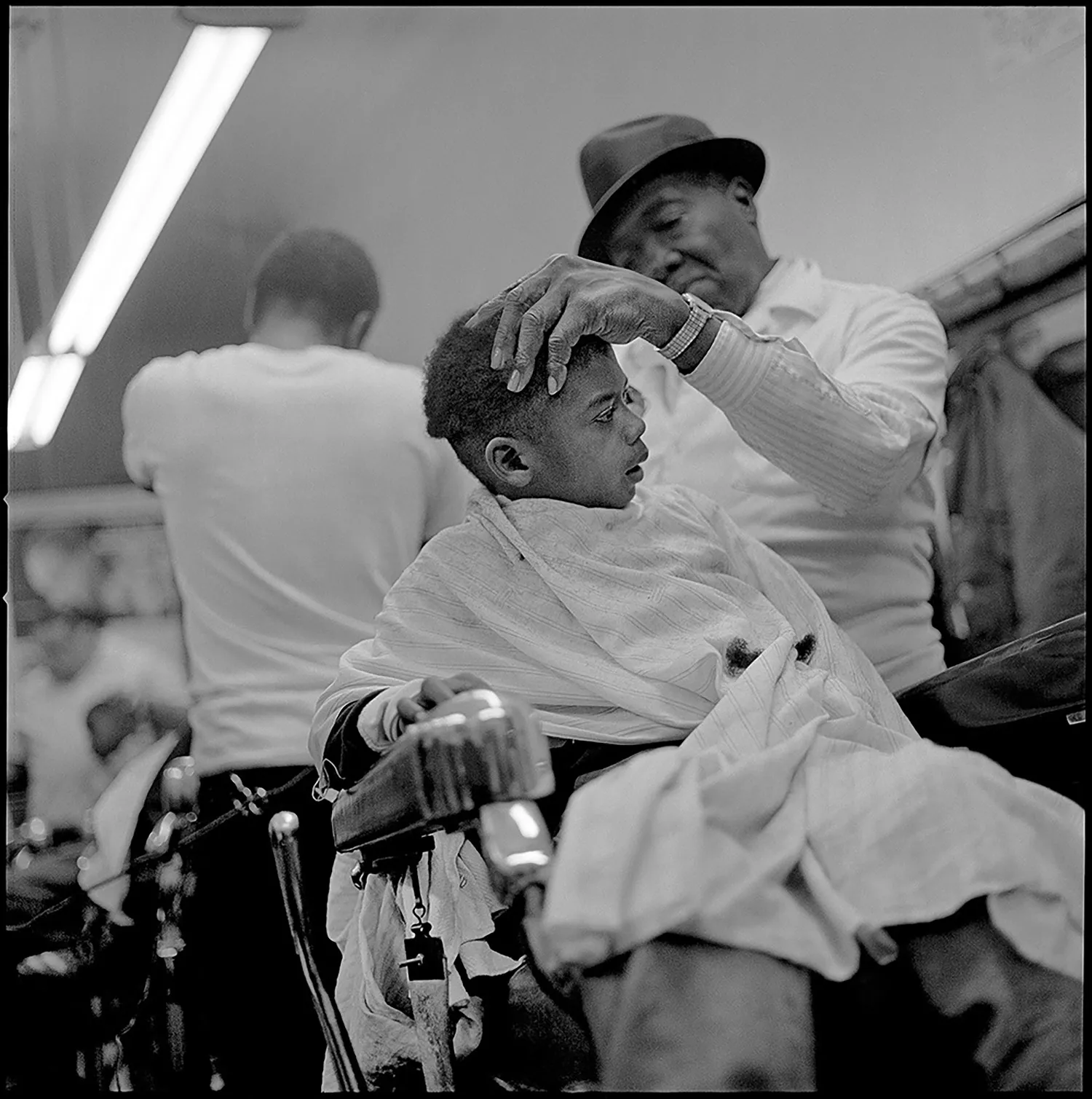
Jeffrey Henson Scales' series offers more than a nostalgic portrait of a vanished Harlem institution—it is a quiet, rigorous meditation on community, ritual, and Black life at a pivotal moment in New York City's history. Over four decades, he has chronicled the subtleties and poetics of Black existence. Here, he turns his lens to House's Barber Shop, a Seventh Avenue fixture that operated for more than fifty-five years. What emerges is a series of images that is at once sociological archive, intimate memoir, and elegiac reflection.
Shot between 1986 and 1992 with a Hasselblad 500C/M, Scales' photographs capture the shop not merely as a commercial space but as a cultural crucible. The images reveal the choreography of daily life: clippers buzzing in unison, the precise flash of a straight razor, men sharing stories across generations, all under the sterile yet intimate glow of fluorescent lights. Through mirrored walls and narrow aisles, Scales conveys the tactile intimacy of the space—the textures of hair, the worn leather chairs, the subtle gestures of camaraderie. One senses a time folded into ritual, a rhythm of human interaction that transcends the shop's utilitarian function.
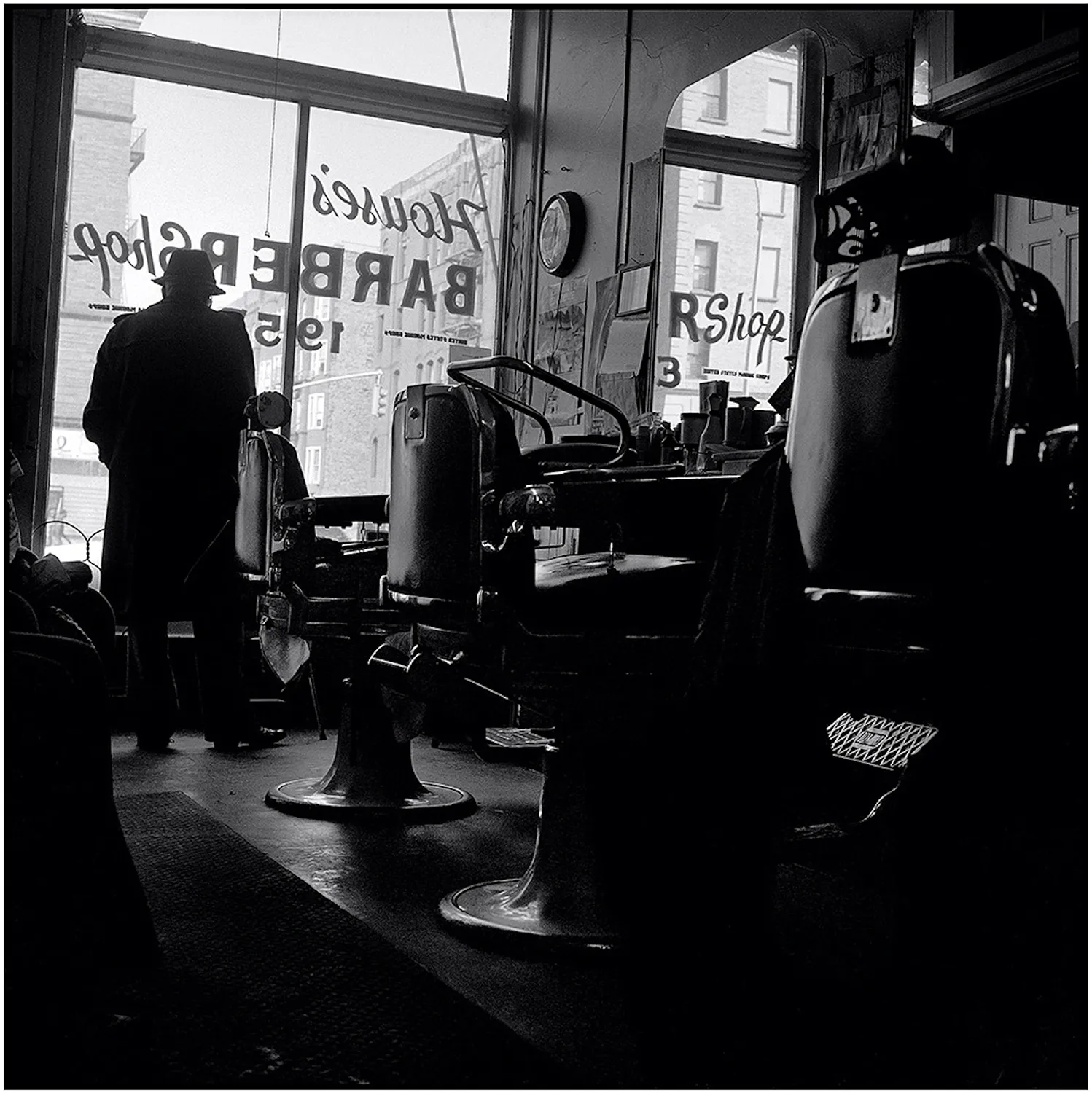
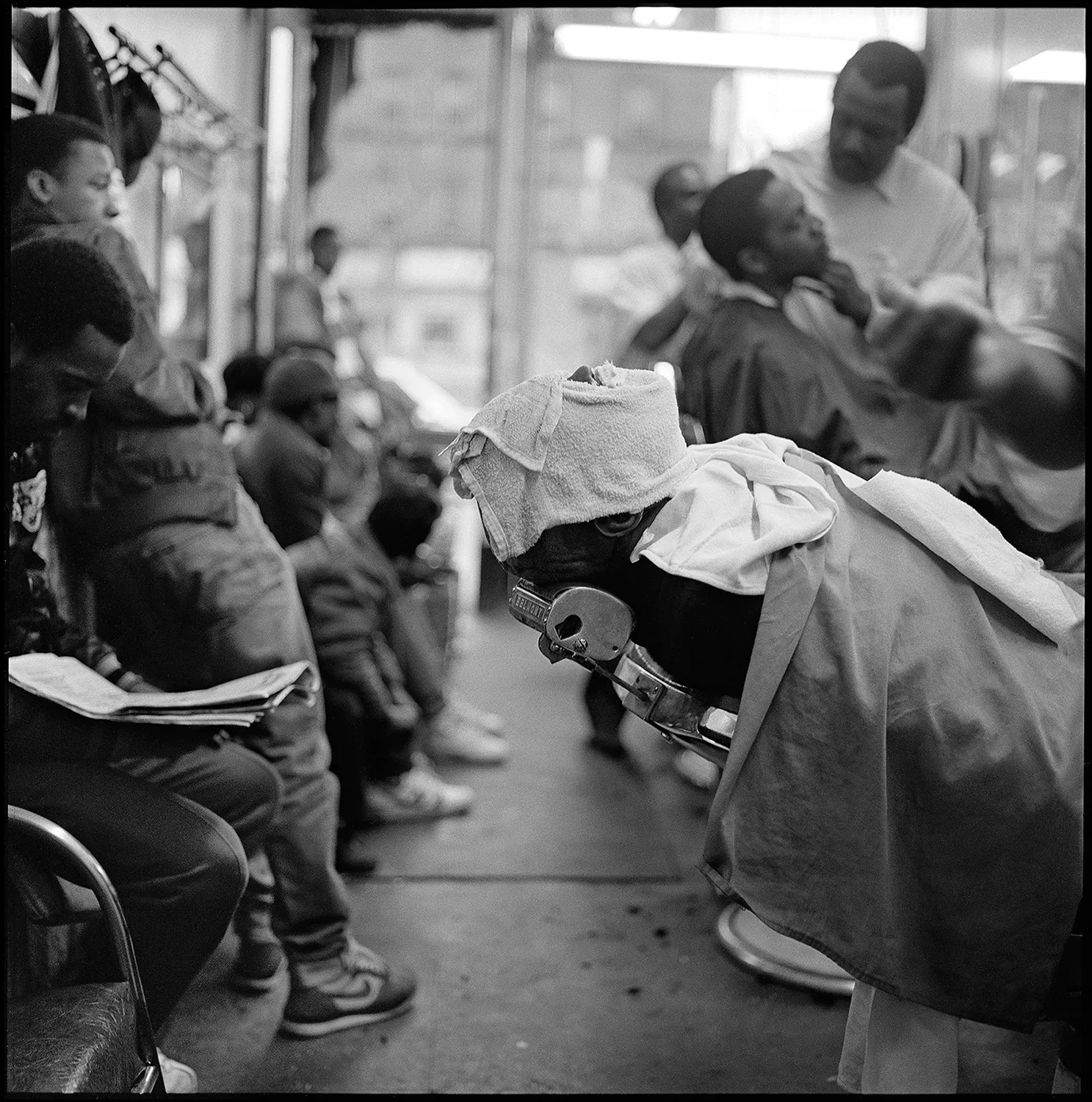
What makes the series especially resonant is its contextual depth. Harlem in the late 1980s and early 1990s was a neighborhood in flux, grappling with the social and economic fallout of the crack epidemic while sustaining the rich cultural traditions that had long defined it. Scales' images register these tensions without didacticism, allowing viewers to inhabit the lived reality of a community under pressure. The barbershop becomes a lens through which to explore Black masculinity, intergenerational mentorship, and the quiet endurance of local institutions in the face of systemic neglect. In his own words, Scales recalls being welcomed by proprietor David House into a "narrow place imbued with so much history," a gesture that catalyzed a five-year exploration of a space suffused with memory and meaning.
"One day, while passing by, I was invited into the shop to photograph it by its proprietor, David House," Scales recalls. "At the time he thought he might be losing his lease, and just wanted the shop to be documented. His invitation at the time was like a welcoming into the community that my family had so recently moved. It is something I will never forget, nor diminish its significance."
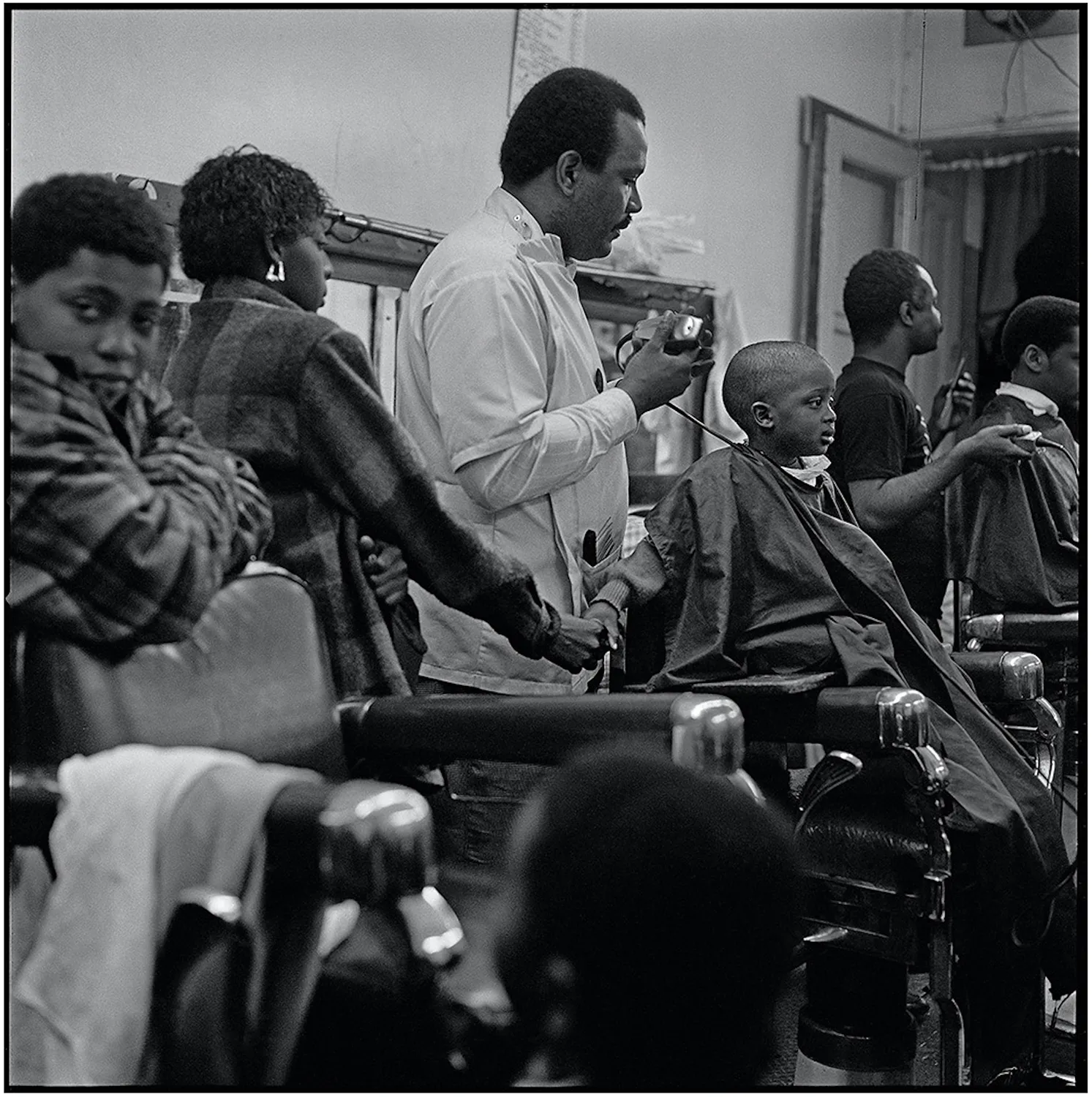
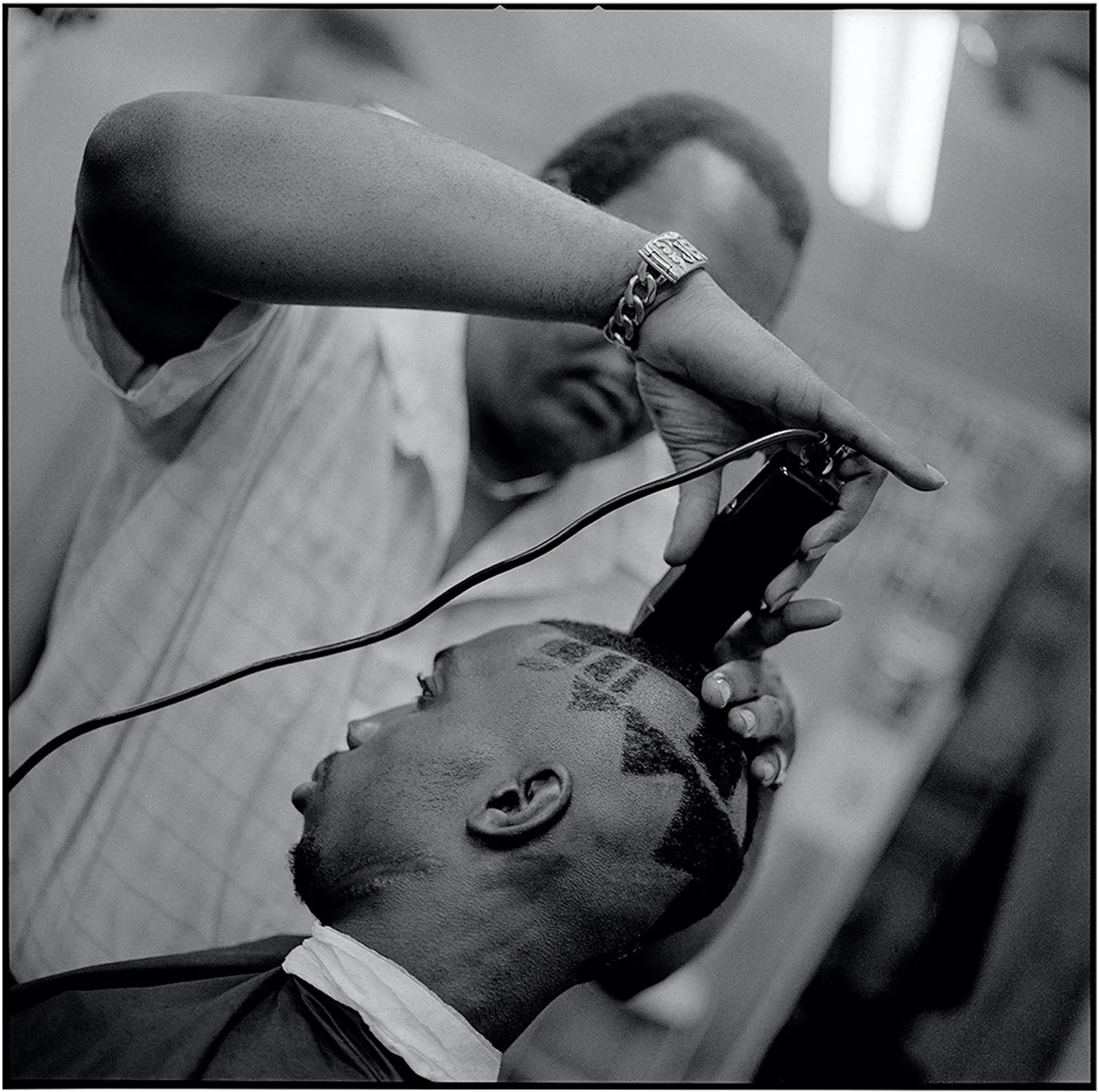
House’s Barber Shop no longer exists, and in a Harlem increasingly reshaped by gentrification, Scales' photographs carry the weight of testimony. They document decades of interactions, intergenerational connections, and the quiet camaraderie that once made this corner of the neighborhood resilient and alive. At the same time, his work is neither sentimental nor static; the images pulse with life, humor, and dignity, celebrating the ordinariness that rendered these everyday moments extraordinary. The series stands as both archive and elegy, preserving a vanished space while honoring the human bonds that sustained it.
The exhibition House’s Barber Shop will be on view at Claire Oliver Gallery in New York until September 20th, 2025.
